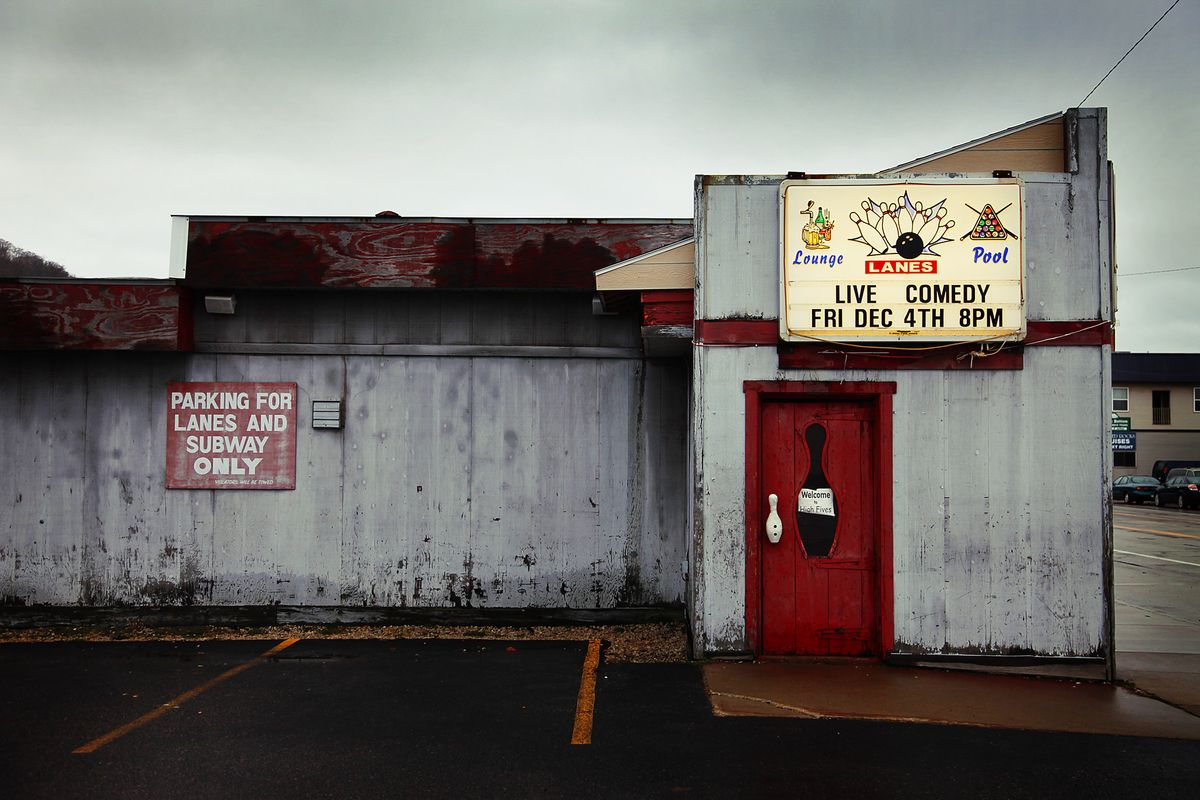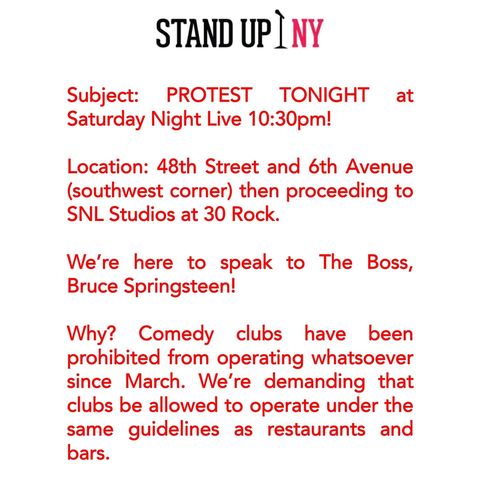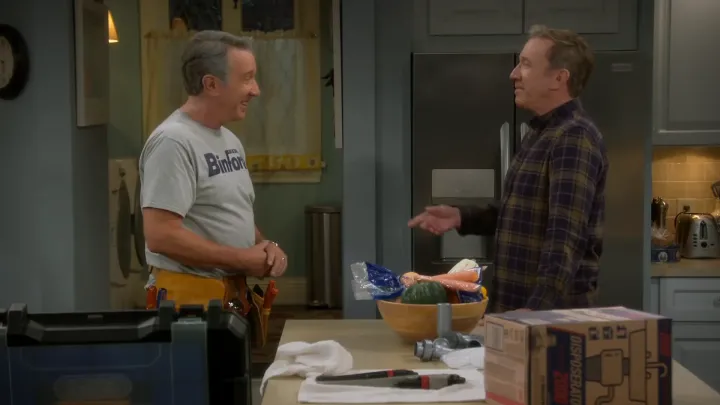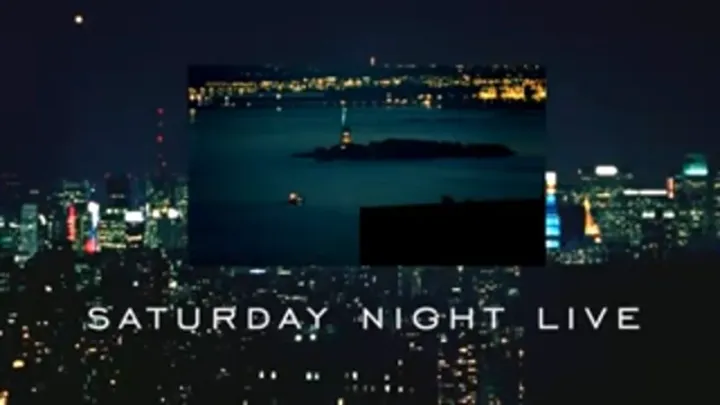The Money Comedy Clubs Need Is Right in Front of Them
A modest proposal.


If you can, please help keep this newsletter going by subscribing for $6/month. If you can’t, that’s cool too! Feel free to forward it to whoever you want or share on your socials—every bit helps.
I just want to do a quick little thought experiment so it’s done and on paper and we can all refer back to it later in our various future discussions.
New York City’s comedy clubs are underwater. A handful received PPP funding early in the pandemic, but broadly speaking there’s been no other form of relief from any level of government. Other city and state governments have stepped up to keep their arts venues alive. New York, not so much:
The arts bring in over $114 Billion to NYC, so you'd think they'd get help, right? First, let's look what other cities are doing for venues:
*Denver - 700k for Venues
* Tuscon - 350k for 15 venues#saveourstages @SenGianaris @NYGovCuomo @jessicaramos @JimmyVanBramer @NYCMayorDecember 3, 2020
* San Fran waived fees & taxes for places of ent
* Sacramento - 6.9M for creative arts economy
* Chicago - 1.2M for 120 Venues
* Indianapolis - 300k for 20 Venues
* Kansas 2.5M for venues
* Oregon - 10M for 78 Venues
* Iowa - 7M arts & culture #saveourstagesDecember 3, 2020
* Asheville - 725K for venues
* Charlotte - 9 mo subsidy for rent/mortgage
* Cleveland - 700k for Venues
* Nashville - 2M for 25 venues
* Kings Cnty WA, 750k for 35 venues
* Austin - 417K for 12 venues
* Colorado - 7.5M relief for arts & culture venues & artists#saveourstagesDecember 3, 2020
A number of comedy clubs have joined forces with other venues to lobby for the Save Our Stages Act, which would give about $10 billion dollars to live arts organizations across the country. This relief will not come anytime soon, if it ever does, and it won’t be enough to make up for nine months of suffering in the comedy community. In the meantime, clubs are still agitating for local authorities to let them resume indoor shows, most recently in the form of Stand Up NY’s “protest” outside Rockefeller Center last night:

A post shared by Stand Up NY (@standupny)
While I agree that the Health Department’s SNL carveout is bullshit, the demand to “be allowed to operate under the same guidelines as restaurants and bars” strikes me as wholly disingenuous: comedy clubs are already allowed to operate under the same guidelines as restaurants and bars, as many have been. If the real demand is for those guidelines to allow live comedy, that’s something else entirely and they should say so.
Stand Up NY is organizing a televised comedy fundraiser benefiting the city’s clubs. I would like to suggest an alternative. Every major club has a direct line to the small group of standups worth tens or hundreds of millions of dollars. These are stars who came up in the NYC scene (or scenes like it) and have a significant investment in its future. Instead of soliciting donations from people who are already struggling, clubs should turn to the industry’s one percent for money—and lots of it.
Consider a small sampling of comedy superstars. Jerry Seinfeld’s 2017 Netflix deal was reportedly worth 100 million. He grossed another $100-$125 million when the streamer bought the rights to Seinfeld last year. Dave Chappelle reportedly made $20 million apiece for his first three Netflix specials; it’s unclear how much he made for the next two, but we can safely assume the answer is “a lot.” Eddie Murphy’s Netflix deal was reportedly in the ballpark of $70 million. Chris Rock’s was $40 million. Kevin Hart reportedly raked in $56 million in 2019, while Sebastian Maniscalco earned $26 million and Amy Schumer earned $21 million. Joe Rogan’s Spotify deal will pay him more than $100 million over the next several years. That’s more than half a billion dollars between them.
A 2018 study of NYC’s nightlife economy estimated that as of 2016, the city had 2,400 live entertainment venues employing 19,900 people. That figure encompasses concert venues, theaters, and dance clubs, so I think we can safely estimate that employees of the city’s 20ish comedy clubs comprise a small fraction of the total. (Also, the report includes a survey of nightlife establishment owners, of whom only 5% owned comedy clubs.) For the sake of argument, let’s say the standup scene employs 2,000 people between comics and club employees.
If each of the seven comics listed above contributes $1 million to a general fund for NYC comedy workers, those 2,000 people will get $3,500 apiece. If they kick in $2 million, it’s $7,000 per person, and so on. You can fiddle with the dials yourself and arrive at all sorts of titillating numbers. Seinfeld, Chappelle, and Rogan alone could drop $5 million each and provide a transformative safety net without denting their bank accounts. Then there are all the other multimillionaire comedians who may not have come up in the standup ecosystem but depend on it nonetheless: Stephen Colbert, Seth Meyers, Jimmy Fallon, Trevor Noah (who paid his furloughed staffers’ salaries earlier in the crisis), the list goes on.
Anyone who lost income when the crisis shut down comedy venues should qualify for these grants. Clubs should coordinate the fundraising and distribution, but in general the money should go directly to people, and it should have no strings attached. This program would not replace political efforts to secure federal funding and relief from taxes, utilities, and other expenses. It would merely provide a lifeline until that relief arrives. (Obviously this proposal can be scaled to other comedy scenes too, but we’re keeping things small for the thought experiment.)
I understand why industry leaders might be unwilling to ask for this sort of help. They may feel that it’s the government’s job to keep the arts sector alive; well, it is. But help’s not coming soon, comedy workers still need it, and in a just world the government would fund arts organizations by heavily taxing the one percent anyway. They may feel that comedy’s one-percenters don’t owe them; well, they do. They owe their whole careers to comedy venues. A few million dollars is a small price for the survival of their art form.
Wealthy patrons have been funding the arts for millennia. Nonprofit arts institutions would not exist without institutional and individual donors. Thousands of artists already finance their work via direct donations from fans. The only difference between fundraising from the general public and fundraising from wealthy comics is that one party can afford to give much more. It would be malpractice not to ask.
Header image via Alex Weimer.


